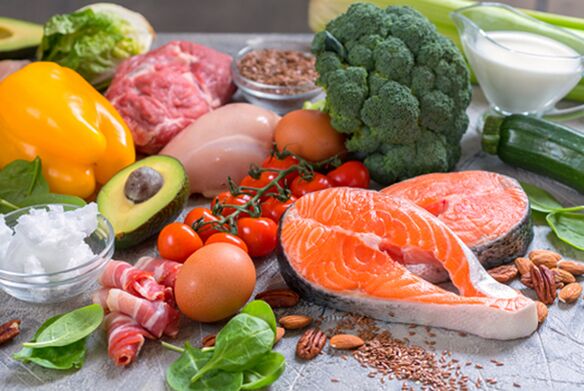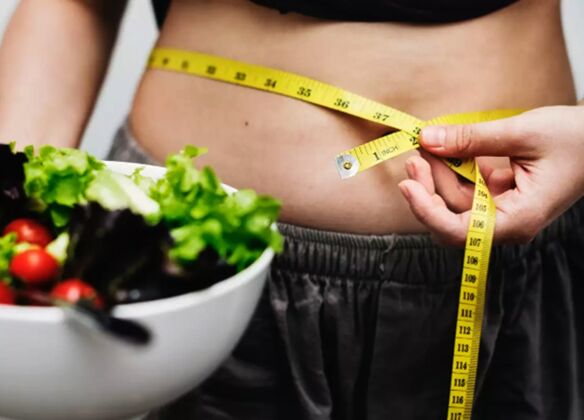
Who is shown the amount of proteins, fats and carbohydrates on the products? Of course, for those who follow a diet of any kind. So, people who follow the low-carb option, in the first place, pay attention to the fact that the carbohydrate content in the product does not exceed a certain amount.
Who needs a low-carb diet and why?
Such a diet consists of reducing or completely eliminating foods that are high in carbohydrates. Originally, the diet was developed for athletes. Now 3 categories of people often use such food:
- Those who want to lose weight.
- Diabetes.
- The athletes themselves.
Carbohydrates in foods are sugar. It doesn’t matter that some high-carb foods are not sweet at all. When processed in the body, any carbohydrates contain sugar. This is why diabetics, people with high blood sugar, adhere to a carbohydrate-free diet.
Also, scientists have proven that too much sugar in food is deposited in the human body in the form of fat. Therefore, people who want to lose weight use a low-carb diet. Athletes just need to keep themselves in good shape. Other low carbon names are ketone or protein regimens.

When eating a low-carb diet, people reduce their intake or eliminate their diet:
- Bakery products.
- Sugar and any sweets.
- Some vegetables: potatoes, pumpkin.
- Sweet fruits: bananas, apricots and berries: cherries, grapes.
- Storage of juices.
- Some cereals: rice.
- Pasta.
And this is not an exhaustive list. But does everyone need a similar diet? After all, they all have pros and cons.
Dietary benefits
Nutritionists and general therapists advise a low-carb diet not only for people who are losing weight and who are sick. You can also limit your carbohydrate intake to normal loading. But in general, such a diet has many benefits:
- Support for the body. Anyone, not just a sick person, should maintain health, because excess carbohydrates act as a slow bomb. Gradually too much persistent high-carbohydrate food destroys the body.
- With a low-carb diet, the body's sensitivity to insulin increases, therefore the pancreas produces less insulin. This allows you to protect yourself from an incurable disease - diabetes. Therefore, prevention of severe illness is a major advantage of the diet.
- For those who are losing weight, the main thing is that you can eat a lot of food without carbohydrates and still lose weight. Some people find it difficult to limit their food intake, so eating carbohydrate-free is a great option. There are no carbohydrates in meat, for example.
- You can lose weight in no time.
- Low-carb foods don’t have to go to a specialty store or buy something special. All the food is sold in ordinary markets near the house in any city or village: I found it and bought it.
- Issue price. It doesn't take a lot of money to diet. You buy normal healthy products that you are already used to: meat, fish, vegetables, dairy food. On the contrary, if you give up sweets, there will even be savings.
- Even low-carbon menus are easy to find on the internet. There is a lot of information with tables, recipes and other useful tips. You don’t have to think for yourself what it is and how it is. And even more so to visit nutritionists to draft a diet. Just download and print your daily ration.
- You may stick to such a diet for a very long time. Over time, cravings for sweets will disappear, and after a few years, the usual sugar doses will appear sugary.
- Such a diet is considered the lightest and most "soft", unlike some others. If everything is done properly, then there will be no stress for the body and the disadvantages will be avoided.

Minuses
Not for nothing that students are advised to eat a chocolate bar before the exam. Sugar is energy and sweets are a quick way to get it. Therefore, a low-carb diet is not good for everyone. Some people should be mindful of the disadvantages of their diet and avoid low-carb diets.
- Workers with intense mental or physical labor should not receive such a diet. And one, and the second one requires the same energy that one does not get without carbohydrates.
- Diabetics, although they should limit their carbohydrate intake, need to be aware that their complete absence can lead to low blood sugar levels - hypoglycemia, which is very dangerous.
- It is worth avoiding such a diet and those who often suffer from edema. It is recommended to drink plenty of water on a low carb diet, which will result in even more swelling.
- You cannot adhere to such a diet for children and adolescents (other than those who are obese). The body needs a normal, rather than low, amount of carbohydrates during the growth period for development.
- Pregnant women, as well as nursing mothers, do not go on diets. You may want to lose weight after giving birth, but the health and development of the baby is more important.
- On a low-carb diet, a person eats more protein and fats. It is harmful to heart patients and those with kidney problems. Kidney stones have been reported on the diet.
- The regimen is sometimes accompanied by headaches and constipation. If these side effects occur, you should stop eating carbohydrate-free foods.
- With a low-carb diet, when sugary foods are restricted, the cravings for them become very strong. Not everyone is able to withstand this craving, as a result, they fail, and all the benefits of the diet go down the drain.
- Because of drowsiness during the beginning of the diet, drivers and people in charge of important things should be careful.
Result
Any diet, including a low-carbohydrate diet, puts stress on the body, so you should not suddenly give up foods that contain sugar. The transition to a carbohydrate-free diet should be smooth, observing your reaction. Only in this case will there be some advantages to the diet and it will be possible to avoid all the listed disadvantages. It’s worth trying to see if a low-carb regime is right for you.














































































